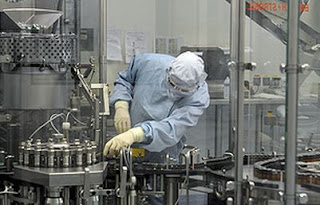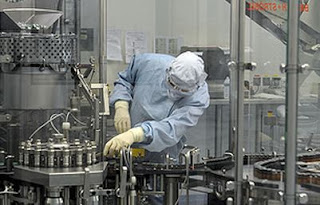Another Greek-born Diaspora scientist, Eleftherios Diamantis, a Greek Cypriot professor of biochemistry at the University of Toronto in Canada, made an important discovery.
In particular, he developed a non-invasive diagnostic biochemical test, which can predict whether a man without sperm, that is, suffering from azoospermia, will be able to become a father through in vitro fertilization.
It can relieve the need for surgery
The test can relieve many men of the need for surgery, as to date doctors have resorted to surgery to determine if a man has viable sperm, which can then be extracted for use in assisted reproduction therapy (egg fertilization). extracorporeal).
The researchers, led by Eleftherios Diamantis and with the participation of Apostolos Dimitromanolakis, who made the relevant publication in the medical journal "Science Translational Medicine", according to the BBC, found two protein biomarkers, which show which men do have viable sperm. in which case surgical removal of the sperm makes sense.
Male infertility is responsible for about half of all infertility cases. Sometimes men who do not produce any sperm can be helped to become fathers through appropriate fertility treatment, as long as it is possible to surgically extract some of their sperm. But other men will have to resort to a male sperm donor.
With current technology, the only way for a doctor to make sure a man really has viable sperm is to have surgery and remove a sample from his testicles for a biopsy. The new test, which detects two proteins (ECM1 and TEX101), predicts in advance whether it makes sense for a man to undergo this procedure.
What is azoospermia?
Azoospermia, which affects almost 2% of the male population, is caused either by the natural blockage of the "channels" through which the produced sperm are channeled into the sperm, or due to the initial inability to produce sperm.
The only reliable method today for diagnosing which of the two forms of azoospermia a sterile man has is invasive testicular biopsy, which can have complications, such as damage to the genital tissue or chronic pain in this area.
The two biomarkers (proteins) of the new test together can show, with almost 100% accuracy, which of the two forms of azoospermia a man has, without the need for a previous biopsy.
Developing a simple clinical test is the next step
The next step, according to the researchers, will be to develop a simple clinical test to measure these two proteins in the sperm. The test is estimated to take one to two years before it can be applied by fertility clinics.
Professor Eleftherios Diamantis heads the Department of Clinical Biochemistry at both the University of Toronto and Mount Sinai University Hospital in the same city.
He was born in 1952 in Limassol and graduated in 1976 from the Department of Chemistry of the University of Athens, from where he received his doctorate in Analytical Chemistry in 1979. He taught at the University of Athens from 1978-1982 and 1984-1986.
Source: ANT1

